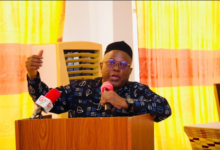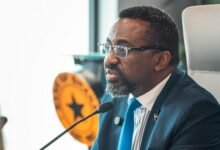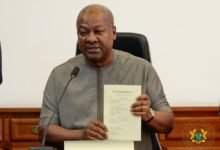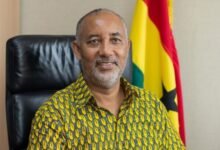Recirculate projects ends with marked achievements

The final meeting for the Recirculate Project was held in Accra last Tuesday, to mark the official end of a series of research activities that have been carried out within the Madina Zongo and Gbegbeyise communities, for the past five years.
The meeting was aimed at celebrating the achievements of the project, share plans for future research endeavours and set a platform for stakeholders to join in building research capability in Ghana, Nigeria and the United Kingdom.
The Recirculate project is a five-year funded project jointly implemented by Lancaster University, Council for Scientific and Industrial Research and the University of Benin, Nigeria
It is a research focused on building and utilising circular water economy which aimed at supporting new partnership-based approaches, to enable African researchers and research institutions to grow transformational impact through working with, in and for communities.
Speaking to the media during the programme, a principal scientist with CSIR, Dr Kwadwo Ansong Asante, said the project implementation process was divided into thematic areas termed Work Packages (WPs).
He indicated that the installation of a weather station fell under the work package two (WP2)-Water for Sanitation and Health to safeguard potable water provisioning to urban informal settlements.
He indicated that under the project, community members of Madina Zongo and Gbegbeyise were engaged to identify sanitation problems within the communities, and how those problems could be solved.
Dr Asante mentioned that sanitation was identified as the topmost issue which needed the attention of stakeholders.
He said activities undertaken in the selected project areas included baseline study of water and sanitary facilities of over 1000 households in the communities.
He also said the project assessed the availability of toilet facilities and access to potable water for use, and its impact on both communities, especially on children under five years and water sampling in both communities.
Dr Asante indicated that audits were conducted for all water points, including pipelines, assessing how they were connected to each home and availability of water storage facilities such as poly tanks, barrels and other receptacles.
He said the receptacles were prone to dust and other particles which contaminated the water, adding that “we educated them on how to keep their containers clean to improve the quality of the water and their health.”
The Project Manager, Prof. Kirk Sempel, said the project was a £7 million fund which brought together numerous partners from universities, research institution and the private sector.
He said the purpose of the project was to develop a safe circular water economy that would protect human life from contaminated water, and reduce diseases in communities and use waste as a resource to produce energy.
According to Prof. Sempel at Lancaster University in the United Kingdom, energy and security were major problems in sub-Saharan Africa, and therefore used the waste to produce biogas and later convert into electricity.
He said it was also used in the production of digestate which is a nutrient-rich substance that could be used as a fertiliser in agriculture.
BY JEMIMA ESINAM KUATSINU






